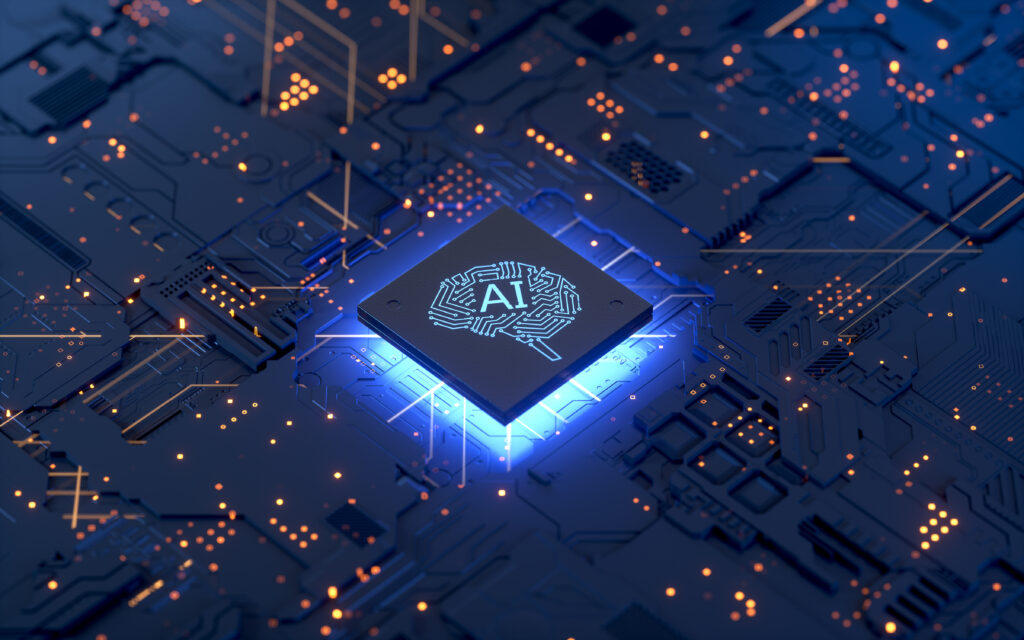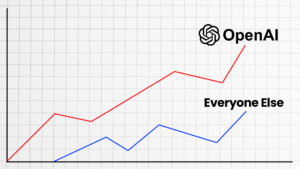In an era marked by rapid technological advancement, businesses are constantly seeking innovative ways to gain a competitive edge. One such avenue is the integration of Artificial Intelligence (AI) into their operations. AI promises increased efficiency, reduced costs, and improved decision-making. However, like any tool, it comes with its own set of advantages and disadvantages. In this comprehensive guide, we will explore the pros and cons of automating your business with AI and suggest a balanced approach tailored to your industry’s unique needs.

Pros of Automating Your Business with AI
1. Enhanced Efficiency
One of the most significant benefits of incorporating AI into your business is the potential for enhanced efficiency. AI-driven systems can process large volumes of data at lightning speed, resulting in quicker and more accurate decision-making. Tasks that would take human workers hours or even days to complete can be executed in a matter of seconds. This efficiency boost can lead to increased productivity across various departments.
2. Cost Savings
Automation can translate into substantial cost savings for your business. While there is an initial investment in AI infrastructure and software development, the long-term savings are often significant. AI systems work tirelessly without requiring breaks, benefits, or overtime pay. Moreover, they can minimize errors, reducing the need for costly rework or customer support.
3. Data-Driven Insights
AI is adept at analyzing vast amounts of data to extract valuable insights. By automating data analysis, businesses can make more informed decisions and identify trends that might otherwise go unnoticed. This can be particularly valuable for marketing, customer segmentation, and product development.
4. Improved Customer Service
Chatbots and virtual assistants powered by AI have revolutionized customer service. They are available 24/7, respond instantly, and can handle routine inquiries, freeing up human agents to focus on more complex issues. This leads to improved customer satisfaction and loyalty.
5. Scalability
AI systems are highly scalable. Whether your business is small or large, you can tailor AI solutions to your specific needs. As your business grows, you can easily expand your AI infrastructure to accommodate increased demands.

Cons of Automating Your Business with AI
1. High Initial Costs
Implementing AI technologies can be expensive, especially for small businesses. The cost of acquiring and implementing AI systems, along with the need for skilled AI developers and data scientists, can be a significant barrier to entry.
2. Job Displacement
One of the most contentious issues surrounding AI automation is the fear of job displacement. As businesses automate routine tasks, some human workers may find their roles obsolete. This can lead to job loss and economic disparities, which need to be addressed by responsible implementation and upskilling initiatives.
3. Technical Challenges
AI systems are not without their technical challenges. They require ongoing maintenance, updates, and fine-tuning. Moreover, they may not always perform as expected, leading to errors that can be costly and damaging to the business’s reputation.
4. Lack of Human Touch
While AI can handle many tasks efficiently, it lacks the human touch. Some customers still prefer interacting with humans for complex or emotionally charged issues. Relying too heavily on AI in customer service can lead to a disconnect with your customer base.
5. Privacy and Security Concerns
AI systems collect and process vast amounts of data, raising concerns about data privacy and security. Businesses must take robust measures to protect sensitive information and comply with data protection regulations, such as GDPR and CCPA.

Finding the Right Balance
So, how can businesses strike the perfect balance between human and AI workers to operate optimally? The answer lies in a nuanced approach that takes into account the unique needs of your industry.
1. Assess Your Industry
Start by assessing your industry. Some industries are naturally more suited to AI automation than others. For example, businesses in finance, manufacturing, and healthcare can benefit greatly from AI-driven processes. On the other hand, creative industries like writing, art, and children’s books may still heavily rely on human creativity and emotional connection.
2. Identify Redundant Tasks
Identify tasks within your business that are routine, repetitive, and rule-based. These are prime candidates for automation. By automating such tasks, you can free up human workers to focus on tasks that require creativity, critical thinking, and emotional intelligence.
3. Invest in Human-AI Collaboration
Instead of viewing AI as a replacement for human workers, consider it as a collaborator. Develop a culture of human-AI collaboration within your organization. AI can augment human capabilities, providing employees with tools to make better decisions and perform their jobs more efficiently.
4. Continuous Learning
Invest in ongoing training and upskilling programs for your workforce. As AI technology evolves, your employees should stay updated on how to best utilize these tools. This not only ensures job security but also improves the overall effectiveness of your business.
5. Ethical Considerations
Always consider the ethical implications of AI in your business operations. Ensure transparency in your AI processes, especially when handling customer data. Address concerns about bias and discrimination in AI algorithms.
In conclusion, the decision to automate your business with AI should be a strategic one, based on the specific needs and nature of your industry. While AI can bring tremendous benefits in terms of efficiency and cost savings, it must be balanced with human skills, creativity, and empathy. By finding the right equilibrium between AI and human workers, you can position your business for success in the ever-evolving landscape of technology and commerce.
For more insights about your business, contact an Epimax representative today!














